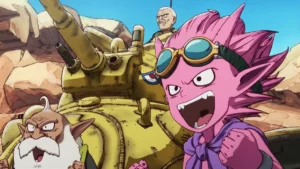Ahsoka 2023 Tv Mini Series Review – Star Wars

As the realm of Star Wars TV shows evolves, it’s clear that the dynamics have shifted. While dedicated franchise enthusiasts continue to eagerly consume each new installment, casual viewers now face the challenge of prioritizing their limited time. Amidst this landscape, the question arises: where does “Ahsoka” fit in? Is it a crossover delight similar to “Andor,” the early seasons of “The Mandalorian,” and the concluding chapters of “The Book of Boba Fett”? Or does it lean towards being a venture solely for fervent fans, akin to much of “Boba,” recent “Mando,” and the entirety of “Obi-Wan Kenobi”?
After a two-episode debut that introduces us to the new escapades of Ahsoka Tano (played by Rosario Dawson), the answer remains elusive. “Ahsoka” exhibits glimpses of the excitement seen in “Andor” and the initial “Mandalorian,” yet it grapples with a syndrome that tends to plague subpar Star Wars content: an excessive reverence for the franchise’s vast lore, resulting in taking audience engagement for granted.
Our protagonist, Ahsoka, is a former apprentice of Anakin Skywalker, who has resisted the allure of the Dark Side despite her tumultuous past. While Ahsoka’s identity is somewhat nebulous—a mix of mentor, vigilante, and troubleshooter—she presents a poised and unyielding figure in a time of uncertain progress. Although the malevolent Galactic Empire has crumbled, lingering fears of its resurgence remain. Ahsoka’s mission involves tracking down and neutralizing Grand Admiral Thrawn, an exiled stalwart of the Empire, with an arcane map as her guide. Yet, her quest intertwines with that of two sinister mercenaries wielding Jedi-like abilities. As these forces converge over the map, a slow-paced race is set in motion, though speed is hardly a hallmark.
The galaxy portrayed in “Ahsoka” seems untouched by the screenwriting axiom of entering scenes late and departing them early. Consider, for instance, a sequence in which Ahsoka explores an abandoned subterranean hub on a desolate planet. While the show’s design, including the dusty, creaky lair, is visually captivating, the pace leaves much to be desired. Trapdoors open, hidden artifacts are discovered in the sand, and stone obelisks are manipulated for enigmatic powers—yet it all unfolds at a measured tempo. If not wholly invested in savoring every detail of Ahsoka’s actions—ardent fans have watched her journey unfold across animated series “Clone Wars” and “Rebels” for over a decade—viewers might wonder why they’ve dedicated minutes to watching someone locate a map.
As the story progresses, amid captivating CGI backdrops and individuals wandering before they spring into action, a group eventually coalesces. Ahsoka’s quest for assistance in deciphering the map leads her to extend trust to her gifted but unstable former protegee, Sabine Wren (Natasha Liu Bordizzo). Reliable aid comes from Hera Syndulla (Mary Elizabeth Winstead), a high-ranking figure in the New Republic.
The potential of this all-female trio lies in a character-driven exploration of space escapades, where maternal Ahsoka and nurturing Hera endeavor to guide Sabine’s untamed warrior talents. Although Ahsoka’s inscrutability occasionally leaves her reminiscent of a sitcom mom, Hera’s distinct traits remain limited, primarily her verdant visage. However, the dynamic holds potential. Spectacular action punctuates the narrative: Sabine’s impulsiveness ushers in hoverbike duels and chase scenes, and Ahsoka’s skillful fighting style—with her lightsaber held in a reverse grip—never fails to impress. A visit to a bustling port offers insights reminiscent of “Andor,” highlighting the ongoing struggle against fascism. It becomes apparent that though the gaff is no longer governed by the Empire, enlightenment hasn’t reached everyone at the helm.
The groundwork is set, pending a vital realization that Star Wars thrives when infused with vivacity and levity, rather than being mired in seriousness. A missed opportunity arises with Huyang, a droid voiced by David Tennant (reprising his role from “Clone Wars”). Huyang adopts the persona of a caring yet meticulous butler, channeling notes of PG Wodehouse’s Jeeves and “Red Dwarf’s” Kryten. However, in a show where scenes often involve characters discussing matters directly—a breach of the “show don’t tell” principle—Tennant grapples with delivering humorless lines in a comedic tone. Just as with the rest of “Ahsoka,” greater potential lies untapped, waiting for the show to unleash its charm and entertain its audience.




